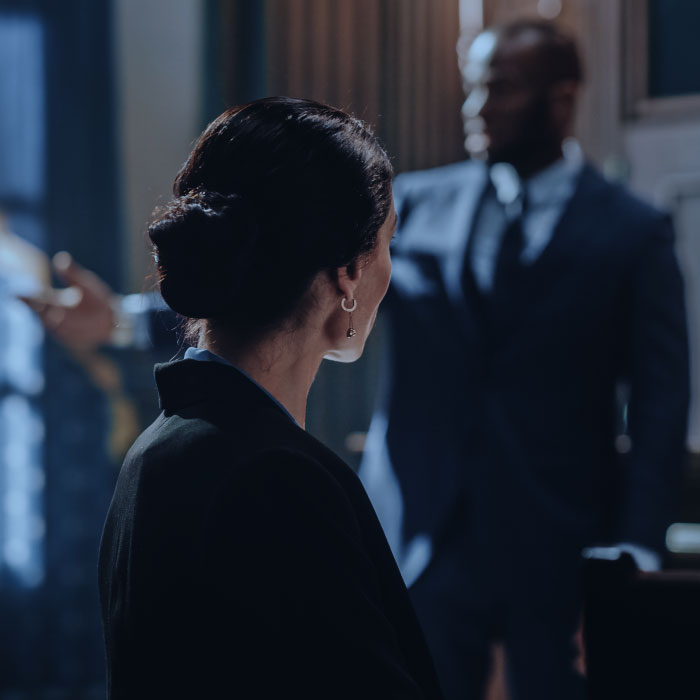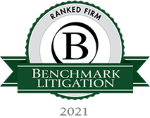Personal Injury Attorney Overview
Personal injury law helps people injured by accidental or wrongful conduct by making the injured “whole”, or, giving them back what was taken.
However, our system of justice understands you can’t undo an injury.
In fact, the best the law has been able to accomplish since the beginning of what has become our modern justice system, is to try to come up with an amount of money that fairly represents the harm caused to another person.
In other words, the law provides compensation to personal injury victims in the form of monetary damages, or money justice.
Types of Personal Injury Cases
There are many types of personal injury cases.
Most personal injury claims arise from the law of negligence, which holds individuals and companies liable when they fail in their duty to act reasonably or responsibly and another is injured as a result.
Some common personal injury cases include:
- Car and truck accidents
- Medical malpractice
- Birth injuries
- Nursing home accidents and neglect
- Workplace accidents
- Premises liability
- Product liability
- Defamation
Personal injury cases involve more than just physical injuries. So often, the damage that occurs is mental or emotional. In fact, most injury cases also involve mental and emotional damages as well.
The Law of Negligence
Most personal injury cases are based in the law of negligence.
Negligence means a person or entity fails to conform to the ordinary standard of care of a reasonably prudent person.
When someone breaches the standard of care and another person is injured, that is negligence, and the victim may be entitled to damages.
Negligence can occur through imprudently performed actions and can also happen by omission when there is a duty to act.
In determining whether someone breached the duty of reasonable care, the law asks whether that person’s conduct could foreseeably result in the harmful consequence.
There are four vital elements to establish a negligence case.
- Existence of a legal duty
- Defendant’s breach of that duty
- Plaintiff’s injury
- Proof that defendant’s breach of duty caused plaintiff’s injury
Depending on the circumstances, the defendant in a personal injury case might have a heightened duty of care.
For example, a doctor providing medical care has a duty to behave as a reasonably prudent doctor would under similar circumstances.
Intentional Torts
Some personal injury cases arise from intentional, wrongful conduct that causes an injury.
Intentional torts occur when the defendant engages in willful, knowing, or reckless misconduct that causes an injury.
Intentional torts often also constitute crimes, but intentional tort cases require a lower standard of proof and are, as a result, easier to win.
Common intentional torts include:
- Assault
- Battery
- False imprisonment
- Defamation
- Fraud
Proving intent can be tricky because it requires getting into the defendant’s head to determine his or her mental state.
When filing an intentional tort lawsuit, personal injury lawyers will often include a claim for negligence so the plaintiff can potentially recover damages if they are unable to prove the element of intent.
Wrongful Death
Wrongful death can occur from the intentional or negligent actions of another.
When you lose a loved one through wrongful death, you grieve.
You fear the future for what it may hold. You agonize about how your family will move forward emotionally and financially.
Wrongful death cases involving the family’s primary financial source can be particularly stressful for the bereaved because they have to think about how they will pay bills moving forward.
There are several types of damages in wrongful death cases family members can pursue on behalf of themselves and the deceased, including:
- Loss of society
- Loss of consortium
- Medical expenses
- Burial costs
- Pain and suffering
- Lost wages
Wrongful death laws vary from state to state, but the common theme is that in most cases the family members can sue for their own damages, such as loss of society, and damages the deceased incurred while still living.
When a child is the victim of wrongful death, we can calculate their lost earning potential and other lost opportunity costs.
Determining your case value is a fact intensive inquiry. If you have lost a loved one due to wrongful death, call DLG For Me today.
We have the expertise to evaluate your case and the compassion to help your family in its time of need.
Our consultation is free, and we represent our clients on a contingency basis, which means we don’t get paid unless you do.
Determining If You Have a Personal Injury Claim
Each state has its own personal injury laws. Whether you have a valid claim will depend on the law of the state where the injury occurred.
The best way to find out if you have a valid personal injury claim is to hire a lawyer because they will know the laws of your state and help you preserve your evidence.
If you have been injured and believe it was someone else’s fault, the first thing you should do is seek immediate medical care for your injuries.
Make sure to keep a record of your office visits, medical bills, prescription receipts, and all other costs associated with your treatment.
After you’ve been injured and after you seek medical care your next step should be seeking out legal advice.
Personal injury lawyers work on contingent fees, which means they don’t charge a fee unless they win your case and get a settlement check.
You don’t have anything to lose by seeking advice from a personal injury lawyer to determine whether you should file a lawsuit.
After you hire a law firm, they need to investigate your claim and review your medical records to determine the best course of action to pursue your case.
Most often, personal injury cases settle. Some defendants refuse to offer a settlement, which means you have to take your case to trial.
When hiring a personal injury attorney, look for someone who has a track record of trying and winning cases.
The Statute of Limitations in Personal Injury Cases
The statute of limitations is a legal time limit to file a lawsuit. Different types of cases have different statutes of limitations, and federal and state governments each have their own deadlines.
If you don’t file a lawsuit before the statute of limitations expires, your claim will be barred, and you will not recover damages for your injuries.
Determining how long you have to file a lawsuit can be tricky.
Usually, the clock starts running on the day the accident occurs.
However, sometimes other events trigger the statute of limitations to run.
Most state personal injury statutes of limitations vary from two to four years, but in some states the time limit is as short as one year.
If you’re uncertain about the deadline for filing a claim in your state, it’s important that you contact a lawyer immediately for a complimentary case evaluation.
While the law varies from state to state, if you have been the victim of negligence or an intentional tort, you should call a personal injury attorney as soon as possible, because time to recoup your losses is strictly limited.
DLG For Me lawyers have tried many cases in many states and knows how to calculate your filing deadline.
If you have been injured by the fault of another, call DLG For Me today for a complimentary case evaluation.
You will not pay a fee unless we win your case.
Compensation and Damages in Personal Injury Cases
Personal injury plaintiffs who prove their case by a preponderance of the evidence are awarded compensatory damages that are meant to compensate the injured plaintiff for losses resulting from the accident.
Sometimes, when the defendant’s conduct was especially malicious, plaintiffs can recover punitive damages that are meant to punish the defendant and deter similar conduct in the future.
Compensatory damages have several elements and are broken up into economic and non-economic damages.
Economic damages are financial costs directly tied to the injury that are easily calculated with receipts and medical bills.
Economic damages include
- Medical bills
- Future medical expenses
- Lost income
- Lost earning capacity
- Property damage
- Out of pocket expenses
- Rehabilitation
Non-economic damages are usually more difficult to prove. These damages compensate for things like pain and suffering and loss of society.
You’re more likely to get non-economic damages if you can prove economic damages.
Evaluating your case value and how much you’re likely to recover takes experience in personal injury law.
The only guarantee is that the insurance company involved isn’t going to offer you the highest value for your claim without legal representation, and statistics show that plaintiffs represented by a lawyer receive many more times as much in settlement as those without representation.
If you have been injured by the fault of another and are questioning your best options, DLG For Me has the answers.
Our compassionate and experienced attorneys will lay out your options and help you forecast the possible outcomes.
Call today for a complimentary consultation that will not obligate you to become a client unless that is what you want.
Filing a Personal Injury Claim
Usually, the injured person files a lawsuit on their own behalf as the “plaintiff,” alleging that the “defendant” has hurt them in some way.
Sometimes there is more than one defendant, or the named defendant will point to another entity as the liable party. In wrongful death cases, the family of the victim files the lawsuit on behalf of the decedent and surviving family members.
Cases with multiple parties quickly get complicated and having an experienced lawyer to help becomes incredibly valuable.
While the process can seem overwhelming, especially when you are at your most vulnerable, it is essential that you find a lawyer you can trust to help make you whole.
Whether you were injured by a truck accident, car wreck, health care provider, nursing home, or defective product, the experienced attorneys at DLG For Me can help you get the help you deserve when you are suffering from a personal injury.
For minor claims, individuals sometimes successfully represent themselves in court. But when faced with a powerful defendant like an insurance company or large corporation, individual plaintiffs can quickly become overwhelmed with the legal process and be tempted to fold.
Additionally, the upfront costs of pursuing your claim in court, such as filing and service of process fees, can quickly add up and make the process a financial burden you don’t need when you’re injured.
Personal injury lawyers have processes in place to handle tough defendants and advance court costs that you don’t have to repay unless they win your case.
Having the legal expertise and financial backing of a law firm makes the process easier and significantly increases the likelihood that you will recover your damages.
At DLG For Me, we have the trial expertise and capital resources to help you succeed and get the compensation you deserve.
If you have been accidentally or intentionally injured, call DLG For Me today for a free consultation about how you can move forward with your claims.
Attorney Fees
Personal injury lawyers work on contingent fees, which means that the attorney’s fees are paid “contingent” upon a successful resolution of the case.
There are no upfront attorney fees in personal injury cases. Instead, when the case settles or you get a jury verdict, the lawyer takes a percentage of the proceeds.
Contingent fees typically range from about 30-45%.
At DLG For Me, we never charge personal injury plaintiffs a fee until we win and we advance the costs of litigation until we get a successful resolution.
Want to learn more? Check out the Wikipedia article on personal injury attorney for more information.

Free Personal Injury Case Review
Top-Rated & Reviewed
DLG For Me Awards and Recognition





